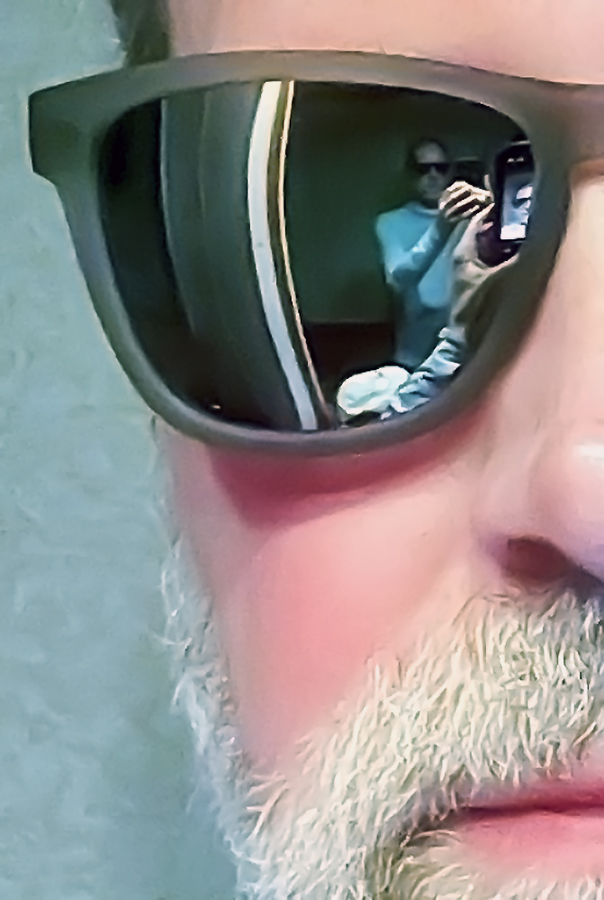“There is one question alone that you must ask yourself in order to establish whether the serious novel will still retain cultural primacy and centrality in another 20 years. This is the question: if you accept that by then the vast majority of text will be read in digital form on devices linked to the web, do you also believe that those readers will voluntarily choose to disable that connectivity? If your answer to this is no, then the death of the novel is sealed out of your own mouth.”
–Will Self, “The novel is dead (this time it’s for real),” The Guardian, May 2, 2014
The novel has been written off for dead so many times, I’ve almost stopped reading the obituaries. Almost.
I flagged the quote above by English novelist Will Self as “well said” the moment I read his article, but lacked time to post or opine about it right away. His logic struck me as compelling. He believes the shift from paper to digital isn’t just changing the medium, it’s changing the readers.
Like so many people today, I spend the majority of my working hours and much of my leisure time at a screen connected to the Internet. Self aimed his critique squarely at my inner guilt lobe—a swollen section deep in my brain that recognizes how often I stray from the task at hand because “at hand” is exactly where the distractions and temptations lie—hyperlinks requiring only a click and search boxes that complete my thoughts. Self claims he switched to writing books on a manual typewriter a decade ago to prevent such diversions.
Now, that I’ve had some time to think about his argument, I am less persuaded. Beyond the folly of trying to predict what will be 20 years hence, answering his question requires definitions that do not exist. No bright line separates “serious” novels from unserious ones. Nor is there clear agreement on what constitutes “cultural primacy and centrality.” These are constructs that vary from place to place and tend to change over time.
I might argue that the type of novel Self has in mind has always occupied the place he fears it is now headed—that is, a largely niche role in society. Self argues that “books are going to become a minority technology.” That’s been true at least since the advent of television. Talk about “cultural primacy and centrality.”
I grew up in a family-run bookstore. At 16, I took a job at a grocery store and discovered the great unwashed. Everyone eats. Relatively few buy books. Fewer still read them all the way through.
One of my favorite bookselling stories:
A mother in spandex resembling the Michelin man enters with two children in tow, one a languid teen and the other an ebullient 5- or 6-year-old. The younger daughter makes a beeline for the children’s section, while the other assumes postures intended to render her invisible.
Mom sidles up to the counter with a slip of paper and asks, “Do you have something called Billy Budd?”
“Yes, of course, Herman Melville,” I reply. I walk over to Classics and retrieve one of many copies I have in stock, since it is on the assigned reading list at several area schools.
“I don’t know why they make the young’uns read this stuff,” Mom says as I count out her change.
The younger daughter bounces up with a tiny grin and a huge book in hand. “Mama, Mama, buy me this. Please!”
“Put that back. You don’t need no book. C’mon, we’ll getcha a doughnut.”
The three head for the pastry shop down the block.
This story is useful for two reasons:
- Billy Budd, unfinished when Melville died and stitched together in several iterations by successive scholars, typifies a work that saw its critical acclaim evolve over decades.
- I have told this story many times, but this is the first time I’ve written it. The elements most difficult to capture in text are timing and the customer’s accent. Surely, people thousands of years ago had similar misgivings when the written word began capturing the oral tradition. “The epic is dead,” they probably lamented.
Sure, I worry about mediocre literacy levels, shrinking attention spans, upheaval in the publishing business, and the dicey prospects for artists of all types to earn a living doing what they love.
But long-form storytelling predates the written word. It will survive the digital age.


